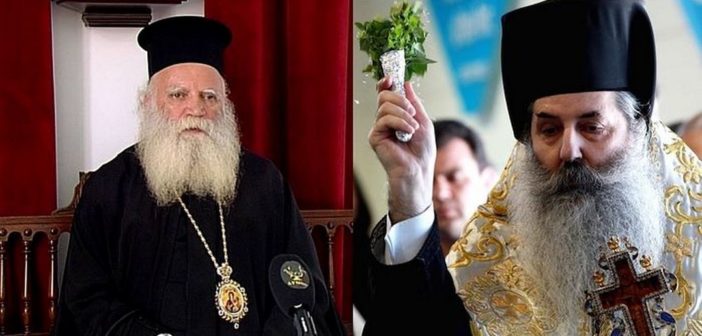Source: Orthodox Christianity ATHENS – While media reports have stated that the Bishops’ Council of the Greek Church resolved to recognize the schismatic “Orthodox Church of Ukraine” on Saturday, drawing on Metropolitan Hierotheos Vlachos’ statements to the press, two prominent hierarchs of the Greek Church say this is not true. Both Metropolitans Seraphim of Piraeus and Seraphim of Kythira, both of whom have addressed the Ukrainian issue several times before, have issued statements in the wake of Saturday’s session, stating that the issue of recognizing the OCU was not put to a vote and that the hierarchs simply reaffirmed the Holy Synod’s earlier decision.…
Browsing: Metropolitan Seraphim of Piraeus
Source: Pravoslavie.ru Metropolitan Seraphim of Piraeus has sent a letter to the Holy Synod of the Greek Orthodox Church concerning the upcoming Pan-Orthodox Council. The main propositions of the document were published on the site Agionoros.ru. Vladyka styled the decision that every Local Church shall be represented by twenty-four hierarchs at the council “a never-before-seen innovation,” without precedent in two thousand years of Church history. He noted that at every Ecumenical Council “as many bishops as possible” took part. In practice, Churches did sometimes send representatives, but only in the event that the bishop could not arrive to the Council…


